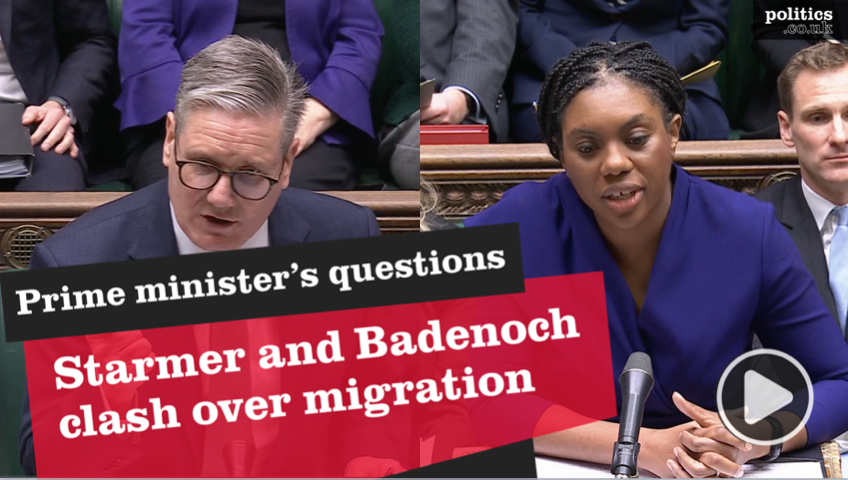The below content first appeared in Politics.co.uk’s Politics@Lunch newsletter, sign-up for free here and never miss this essential election briefing.
Labour’s internal war is over — and Keir Starmer has won it. That, whatever your view on the rights and wrongs of the Labour leader’s approach to his party, is the key takeaway following yesterday evening’s brutal candidate selection drama.
As I have written before, Starmer only knows one way to treat his intra-party opponents: ruthlessly. Since 2020, disempowering and dispossessing his left flank has been the Labour leader’s animating imperative within his party. Still, there has always been something of a self-contained nature to Starmer’s alleged “purges”: his decision to exile Jeremy Corbyn in 2023 was deeply symbolic, of course; but while the episode boded ill for Corbyn’s comrades on the Labour left, Starmer continued to pick his battles selectively — and therefore effectively.
Before we assess the brutal details of yesterday’s candidate drama then, one observation is that Sunak’s decision to call an early election has intensified Starmer’s intra-party activism — accelerating the process by which candidates need to be selected and, in some cases, deselected. Very predictably, however, the Labour leader has seized the opportunity to strengthen his position and realign his party to a greater extent than any of his predecessors, of whatever ideological hue.


As such, a scan of the battlefield this afternoon would shock any outside observer — even those accustomed to Starmer’s breathtaking ruthlessness. Yesterday evening, it was revealed that two of Labour’s last-standing left-wingers — Lloyd Russell-Moyle (an ex-MP since parliament’s dissolution) and Chingford and Wood Green candidate Faiza Shaheen — have been deselected. Shaheen had been facing internal party scrutiny over past social media activity; while Russell-Moyle claimed his deselection was related to a “vexatious and politically motivated complaint about my behaviour eight years ago”. Meanwhile, Apsana Begum — like Russell-Moyle a Socialist Campaign Group devotee — is understood to be subject to a renewed deselection attempt from her Constituency Labour Party (CLP).
And what of recent selections? Because of the surprise nature of the general election, the central Labour Party has taken full control of prospective MP picks; it comes as a number of constituencies have been vacated in recent days by Labour retirees. Accordingly, it was confirmed last night that a series of candidates loyal to Starmer’s leadership have been chosen by the central party. These include Luke Akehurst (North Durham) and Josh Simons (Makerfield), who run pro-Starmer groups Labour First and Labour Together respectively. Elsewhere, it was confirmed that journalist Paul Waugh will battle George Galloway for Rochdale; while ex-Rachel Reeves adviser Heather Iqbal was picked for Dewsbury and Batley.
Like any significant scuffle, the factors informing each selection and deselection are shrouded in the fog of war. But we can be in no doubt as to the end result: the Labour right has never been more powerful within the party, and its ascendency has come directly at the expense of the Labour left. Starmer has seized the opportunity of an early election to put his control of Labour beyond any doubt — the long-term implications are significant and varied.
It amounts to a political calculation on behalf of the Labour leadership, and a remarkably consistent one when Starmer’s tenure is viewed in full. While the Labour left has languished in the wilderness since Jeremy Corbyn’s defeat at the 2019 election, it has retained enough of a hold in the parliamentary party to potentially cause a future Starmer government problems. But what is left of the Labour left today? When compared to the hordes of Starmtroopers set to march on parliament, little indeed.
In this way, the Labour leadership’s primary calculation has been to provoke a relatively containable party psychodrama now, rather than face showdown after showdown in the coming parliament. As such, Starmer has also calculated that he can afford a noisy battle with his left flank, given his vast poll lead over the Conservatives. In fact, Starmer may calculate that this drama benefits him politically.
Recent moves, then, are informed both by what the party believes it needs to get into power and what it wants once in power. When the next parliament convenes in a few weeks, expect Labour’s latest recruits to rise up the greasy pole quickly. Remaining Labour left figureheads, conversely, will need to tread carefully to retain the whip.
Ultimately, the primary political effect of recent machinations is that a prospective Starmer government has never seemed more distant from its much-maligned ancien régime. After days of drama over Diane Abbott, Starmer has reminded outside observers that angering the left is a feature, not a bug, of his approach to politics.
Indeed, consider the broader symbolism that this all went down as Jeremy Corbyn launched his campaign in Islington North as an independent candidate. The links between Starmer and the Corbynites have been no less than entirely severed — much, one assumes, to CCHQ’s chagrin. The Conservative Party likes to pillory Labour as unreformed and unreformable; more than ever after yesterday’s events, it is an untenable position.
In fact, contrast Keir Starmer’s confidence in taking on his party with that of Rishi Sunak. On Wednesday afternoon, the PM’s immediate predecessor, Liz Truss, appeared on “Lotus Eaters” — the podcast/media platform run by hard right, serial controversialist Carl Benjamin. More on this pretty grim story here. Truss, suffice it to say, will not face any sanction for the appearance; and, as before, the absence of any reproval will only accelerate her march down the right-wing, conspiracist rabbit hole.
This is not to say that the political implications of Starmer’s left “purge” will be entirely positive. In the short-term, at least, the furore over Diane Abbottcontinues to occupy the foreground of British politics, drowning out the party’s messaging on policy. Starmer says a decision is still to be made on Abbott’s future; while the veteran MP insists she will stand for re-election in her Hackney North seat “by any means possible”. It raises the prospect of another Corbyn-esque independent challenge to Labour. Of course, it would also lead to another loyal Starmtrooper being parachuted in.
Ultimately, the bottom line from yesterday’s events is that Starmer has never seemed more in control of his party; and the symbolism of his break with the Corbyn years, at this most crucial juncture, has never been sharper.
Subscribe to Politics@Lunch
Lunchtime briefing
Reform leader slaps down Nigel Farage: ‘We are doing no deals with the Tories’
Lunchtime soundbite
‘They’re out there. Every day I meet them, that little sort of thumbs up, wink, “don’t tell anyone”’
— Launching a new legal immigration policy this afternoon, Reform leader Richard Tice suggests there are “shy” Reform supporters among the electorate.
Now try this…
‘Labour to face fresh attack from Green Party in key seats in election’
The Guardian reports that the party hopes to lure voters who want radical change and strong climate policies.
‘Local figures line up to succeed Diane Abbott as Labour candidate’
Sienna Rodgers reports for PoliticsHome.
‘Diane Abbott row spotlights Labour’s grubby pre-election tradition’
The FT’s Stephen Bush writes that the backlash has ripple effects for Labour’s direction and leadership. (Paywall)
On this day in 2023:












